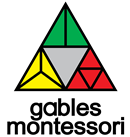In the book ¨The Montessori Method¨ there is a whole chapter dedicated to discipline and independence in the education of children. Discipline is an important ingredient of the system created for this educator, but it must come through liberty and liberty is activity. That is a great principle which is difficult for the followers of common-school methods to understand. The author considers that her system has a concept of discipline very different from that commonly accepted. Montessori call as disciplined an individual that has mastered himself and can regulate his own behavior, that prepares himself not for the school, but for life, thus the base is education and training, something different from coercion or punishment. The discipline becomes part of the character, not limited to the school environment but extends to society.
The rol of the teacher is the observer, the guide is a passive actor and the passivity shall be composed of anxious scientific curiosity and respect. The task consists in checking in the child whatever offends or annoys others, or whatever tends toward rough or ill-bred acts. The rest, every manifestation having a useful scope, under whatever form it expresses itself, must not only be permitted, but must be only observed by the teacher. The liberty of the child should have as its limit the collective interest.
Montessori explains that ¨humanity shows itself in all its intellectual splendour during this tender age as the sun shows itself at the dawn, and the flower in the first unfolding of the petals; and we must respect religiously, reverently, these first indications of individuality. If any educational act is to be efficacious, it will be only that which tends to help toward the complete unfolding of this life. To be thus helpful it is necessary rigorously to avoid the arrest of spontaneous movements and the imposition of arbitrary tasks¨. We cannot know the consequences of suffocating a spontaneous action at the time when the child is just beginning to be active: perhaps we suffocate life itself.
Teachers must be trained for scientific observation, and such training is especially necessary to those who have been accustomed to the old domineering methods of the common school. But that’s not an easy job, because even an intelligent teacher finds difficult being passive and putting the principle into practice. For too long it has been his responsibility to keep the order and silence in class, maybe he can´t understand that the disorder of the first moment is necessary. Maria Montessori writes in his Method that ¨the first idea that the child must acquire, in order to be actively disciplined, is that of the difference between good and evil; and the task of the educator lies in seeing that the child does not confound good with immobility and evil with activity, as often happens in the case of the old-time discipline¨.
How do children learn to be disciplined? When they understand and assimilate that an organized place looks well and it is a good thing to have everything in order, when it is the result of a species of lesson, not an imposition. An educational method that has liberty as its basis must intervene to help the child to conquer obstacles. In other words, his training must help him to diminish, in a rational manner, the social bonds, which limit his activity.
Not only freedom appears as an important element in the Montessori methodology, also the independence. ¨Little by little, as the child grows in such an atmosphere, his spontaneous manifestations will become more clear, with the clearness of truth, revealing his nature. For all these reasons, the first form of educational intervention must tend to lead the child toward independence¨.
Montessori emphasizes that ¨no one can be free unless he is independent: therefore, the first, active manifestations of the child’s individual liberty must be so guided that through this activity he may arrive at independence. Little children, from the moment in which they are weaned, are making their way toward independence¨.
Talking about the education of young children for example Montessori says quite firmly, that ¨the mother who feeds her child without making the least effort to teach him to hold the spoon for himself and to try to find his mouth with it, and who does not at least eat herself, inviting the child to look and see how she does it, is not a good mother. She offends the fundamental human dignity of her son,–she treats him as if he were a doll, when he is, instead, a man confided by nature to her care¨.
¨Any pedagogical action, if it is to be efficacious in the training of little children, must tend to help the children to advance upon this road of independence. We must help them to learn to walk without assistance, to run, to go up and down stairs, to lift up fallen objects, to dress and undress themselves, to bathe themselves, to speak distinctly, and to express their own needs clearly. We must give such help as shall make it possible for children to achieve the satisfaction of their own individual aims and desires. All this is a part of education for independence¨.






